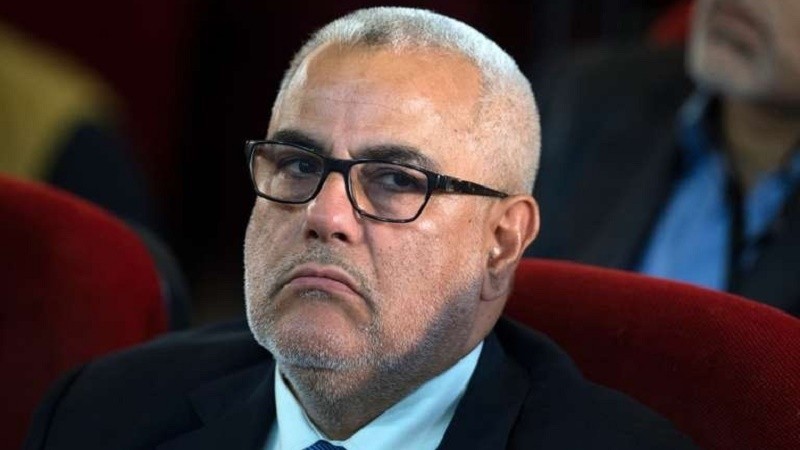Morocco’s position on the Palestinian cause has been subject to several interpretations and analyses — which sometimes or frequently — cast doubts on the legitimacy of the country’s unwavering support due to the advanced bilateral ties between Rabat and Tel Aviv.
The criticism and doubts were apparent as soon as Morocco announced its decision to re-establish ties with Israel on December 10, 2020, with some going as far as to call the development a “betrayal” of Morocco’s historical commitment to the Palestinian cause.
The announcement came from former US President Donald Trump, who touted the US-brokered Abraham Accords, stressing that Washington’s’ “two great friends” ‘ agreed to full diplomatic relations, describing the decision as a “massive breakthrough” for peace in the Middle East.
The news of the re-establishment of ties was followed by a royal statement in which King Mohammed VI reassured the Palestinian Authority that the country’s position regarding Palestine is unchanged.
The statement stressed that the monarch also conveyed Morocco’s position during a phone call with the President of the Palestinian Authority, Mahmoud Abbas.
Morocco’s work to defend the country’s territorial integrity, the King said, “will never be neither today nor in the future at the expense of the Palestinian people’s struggle.”
While King Mohammed VI’s remarks come as a reassurance for Palestine, it also served as a strong reminder to Israel that Morocco would not sacrifice its long-standing, principled commitment to the Palestinian cause on the altar of advanced cooperation with the Jewish state.
The message, in a nutshell, was that, despite becoming diplomatic partners with ISrael, Morocco would not bail on Palestine.
This has been also reflected in Morocco’s frequent press releases and statements reiterating the country’s position – including the tripartite declaration signed with Israel and the US.
“Recalling the exchanged views, during the same conversation between His Majesty King Mohammed VI and His Excellency Donald Trump, on the current situation in the Middle East region in which his Majesty the King reiterated the coherent, constant and unchanged position of the Kingdom of Morocco on the Palestinian question,” the Tripartite declaration affirmed.
In the declaration, Morocco also reiterated the importance of maintaining and preserving the special status of Jerusalem for the three monotheistic religions.
Despite Morocco’s reassurances, the same doubts come to the surface whenever the two countries take a step further to deepen bilateral relations.
Claims casting doubts on Morocco’s position resurfaced when Israel announced its decision to recognize Morocco’s sovereignty over Western Sahara.
King Mohammed VI, however, responded to such doubts through his response to Israeli Prime Minister Benjamin Netanyahu on Wednesday.
Expressing satisfaction with Israel’s newfound Western Sahara position, the monarch renewed an invitation to Netanyahu to Morocco, stressing that this visit will forge the way to a meeting that will open up new possibilities for bilateral ties between the two countries.
It also should serve as an opportunity to promote peace prospects for all peoples in the region — “bearing in mind the content of the tripartite declaration…including the principles which should guide the settlement of the Israeli-Palestinian conflict,” the King added.
Morocco, a potential mediator in the Israel-Palestine conflict
The message is a clear indication that Morocco’s goal is to use good bilateral ties as a cause of peace, with the aim of contributing to improved regional peace.
A potential visit from Netanyahu could also mean the revival of negotiations between the Israeli and Palestinian governments under Morocco’s mediation.
In addition to appreciation from the international community on Morocco’s support for Palestine, the North African country’s efforts in helping other countries in resolving conflicts also made the rounds in international headlines.
The example that comes readily to mind is the Libyan conflict, with many in the international community having repeatedly commended Morocco’s efforts in building a bridge for inter-Libyan dialogue between warring Libyan factions.
Following its facilitation of the adoption of the Skhirat Agreement in late 2015, Morocco went on to actively engage in mobilizing a good climate for inter-Libyan negotiations by organizing a series of roundtables in the Moroccan cities of Bouznika and Tangier.
In addition to Libya, many see Morocco as the most mutually acceptable mediator in the Israeli-Palestine conflict.
For instance, former Israeli Minister for Regional Cooperation Isswi Frej has described Morocco as the acceptable and friendly country that can encourage a real conversation between Palestine and Israel, given the good relations it has with both countries.
“Morocco is the most mutually acceptable among all of the region” to lay the groundwork for actual negotiations between the sides of the long-running Israel-Palestine conflict,” he said in an interview in July of last year.
Morocco’s contributions to tackling regional issues with Israel was also evidenced by the country’s significant role in the decision to fully reopen the vital Allenby Bridge linking the West Bank with Jordan last year.
Morocco worked along with the US to help mediate to ensure that the bridge opened as scheduled, making it possible for people in the West Bank to use the international airport on the Jordanian side of the bridge.
Former Israeli Minister of Transportation Mirav Michaeli described Morocco’s support as a reflection of Abraham Accord’s contribution to the benefit of Palestinians.
She also publicly thanked US President Joe Biden as King Muhammad VI and the Kingdom of Morocco “for their continued commitment and efforts to promote peace and prosperity in the Middle East.”
Deeds are better than words
Many observers and analysts reference Morocco’s constant positions reflected in different actions– including King Mohammed VI’s role as the chairperson of the Al Quds Committee.
Morocco’s unchanged position is also reflected in Rabat statements, condemning any violent aggression made by the Israeli army against Palestinians.
Yasmine Hasnaoui, Moroccan political analyst and a professor of political science and international relations, told Morocco World News that despite its evolving relations with Israel, Morocco has continued to place the Palestinian cause at the forefront of its foreign policy.
Deepening ties with Israel has not and will not stand in Morocco’s way when it comes to calling out Israel’s violations of Palestinian rights and standing the idea of a two-state solution with East Jerusalem as the capital of Palestine, the professor argued.
“Morocco did not miss the opportunity to add its voice to the international community when there was a breach from the Israeli forces,” Hasnaoui told Morocco World News, recalling King Mohammed VI’s phone call following the re-establishment of ties between Israel and Morocco.
Morocco’s support is also reflected in ongoing humanitarian aid as well as direct donations through Bayt Mal-Al Quds.
Hasnaoui also commented on Israel’s decision to recognize Moroccan sovereignty over Western Sahara, stressing that this decision is in line with the unprecedented diplomatic victories Morocco has been achieving in the past years.
For Hasnaoui, however, Morocco did not “wait for this recognition to help achieve ‘ ‘better outcomes’ in the Israel Palestine process,” recalling that Morocco has always defended the two state solution between the two countries.
Source: MWN

















Add Comment